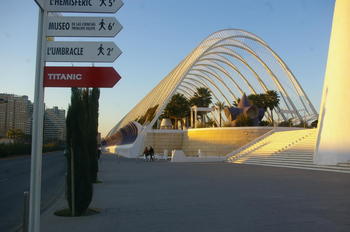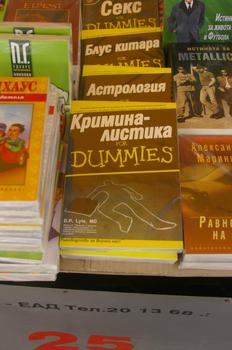We are developing the social individualist meta-context for the future. From the very serious to the extremely frivolous... lets see what is on the mind of the Samizdata people.
Samizdata, derived from Samizdat /n. - a system of clandestine publication of banned literature in the USSR [Russ.,= self-publishing house]
|
Dr. Douglas Young, Professor from the Political Science & History at Gainesville State College has a question for you to ask the next person you see wearing a Che Guevara tee-shirt
Hollywood has dutifully churned out yet another cinematic agitprop paean to a leftist ‘martyr’, this time Ernesto Guevara. So let us recall the real ‘Che’ and try to discern why many supposedly democratic, civil libertarian liberals still swoon over this Stalinist mass-murderer.
The meticulous myth of Senor Guevara is of a handsome Argentine heroically helping Fidel Castro’s guerrillas liberate Cuba from Fulgencio Batista’s military dictatorship in 1959. Then he became a global revolutionary icon inspiring the downtrodden to rise up everywhere, even personally leading rebel warriors in the Congo before being executed doing the same in Bolivia in 1967. The (communist) party line says Che personifies the selfless humanitarian courageously fighting for ‘social justice’. He is the Marxists’ martyred Christ figure replete with pictures of his half-naked corpse riddled with bullet holes. And the classic poster of an angry young Guevara has scarred countless college dorm rooms for over 40 years, putting a face on the eternally young rebel for angry adolescents everywhere.
The real Guevara was a reckless bourgeois adrenaline-junkie seeking a place in history as a liberator of the oppressed. But this fanatic’s vehicle of ‘liberation’ was Stalinism, named for Soviet dictator Josef Stalin, murderer of well over 20 million of his own people. As one of Castro’s top lieutenants, Che helped steer Cuba’s revolutionary regime in a radically repressive direction. Soon after overthrowing Batista, Guevara choreographed the executions of hundreds of Batista officials without any fair trials. He thought nothing of summarily executing even fellow guerrillas suspected of disloyalty and shot one himself with no due process.
Che was a purist political fanatic who saw everything in stark black and white. Therefore he vociferously opposed freedoms of religion, speech, press, assembly, protest, or any other rights not completely consistent with his North Korean-style communism. How many rock music-loving teens sporting Guevara t-shirts today know their hero supported Cuba’s 1960s’ repression of the genre? How many homosexual fans know he had gays jailed?
Did the Obama volunteers in that Texas campaign headquarters with Che’s poster on the wall know that Guevara fervently opposed any free elections? How ‘progressive’ is that?
How socially just was it that Che was enraged when the Russians blinked during the 1962 Cuban missile crisis and withdrew their nuclear missiles from the island, thus averting a nuclear war? Guevara was such a zealous ideologue that he relished the specter of millions of Cuban lives sacrificed on the altar of communism, declaring Cuba “a people ready to sacrifice itself to nuclear arms, that its ashes might serve as a basis for new societies”. Some humanitarian!
Che was a narcissist who boasted that “I have no house, wife, children, parents, or brothers; my friends are friends as long as they think like me, politically”. This is a role model for today’s ‘post-political’ voters claiming we should get beyond partisanship?
Adding to the ridiculousness of the Che cult is that he was virtually a complete failure. As a medical doctor, he never even had a practice. When put in charge of the Cuban economy at the start of Castro’s government, his uncompromising communist diktats ran it completely into the ground, from which it never recovered. Humiliated, and also angry that Castro was not fomenting enough revolution abroad, he then tried to lead such quixotic adventures in Argentina, the Congo, and Bolivia, failing miserably everywhere while sacrificing the lives of scores of naïve, idealistic young followers as deluded pawns in the service of his personality cult.
Another reason he fled Cuba in the mid-1960s was the complete mess he made of his private life. Though he preached sexual purity to his colleagues, he was a shameless adulterer who abandoned two wives and many children, some legitimate, others not. As a grandson put it, “he was never home”. The public Che who supposedly had such great love for humanity privately could not stand most folks.
Guevara’s promiscuous communist adventurism was the pattern of a terminal adolescent running away from his problems to get caught up in some heroic crusade against his eternal bete noir, ‘Yankee imperialism’.
So why do so many well-heeled American libs still admire this thug? Are the young simply ignorant of his execrable record and drawn to the image of the dashing young rebel? Do older progressives feel guilt for their free market prosperity, and showing solidarity with Che absolves them? Do hippies-turned-yuppies get nostalgic for their youthful protests and rationalize that the symbolism of Che as a ‘social reformer’ eclipses his actual horrific human rights record? And are some American Guevaraistas truly dangerous leftists who seek to emulate their icon and destroy our free, democratic, capitalist society?
Ask that guy wearing the Che tee-shirt.
Last night I heard an argument used in relation to the climate change argument and Man’s alleged role in driving it, that went along the following lines: We have a responsibility to ensuing generations, maybe even those around 1,000 years or so hence, which means we should do X or Y to curb CO2 emissions etc to ensure that these future generations’ lives are not blighted.
Now of course nothing is more likely to get your humble blogger annoyed than the “Do it for the children” line. The precautionary principle: do nothing if you cannot prove it will not cause harm – would have killed the Industrial Revolution at birth, prevented any life-saving drug from having been brought to market, been used to shut down scientific speculation, space-faring, advanced dental surgery, modern medicine, the whole 9 yards of human endeavour. And the problem with the argument that says “We have a responsibility to generations yet unborn” is that it demands a great deal. How on earth can I or others evaluate the proper limits or scope of such a responsibility? What about the Law of Unintended Consequences? For instance, if we adopt the PP, and we severely curtail the pace of industrial development, scientific advance or economic growth, will we not bring about disastrous consequences for our children, grand-children and so on? In fact, if folk want to bring up the issue of “Do it for the kids”, I tend to respond that if we are to take this sort of multi-generational responsibility, then we should go for as much freedom and growth as possible, and not the other way around.
Another way to think about this is from the position of scarcity, both in terms of time and resources. I only have so much time in my life to make the sort of adjustments that I might hope to benefit my kids, or my grandkids, or whatever. I also only have so many resources at my disposal. And with that in mind, I think that governments – which after all are only collections of persons – have only fixed resources and time at their disposal too, and that there are major tradeoffs to be considered in stifling a technology A to benefit a technology B. Simply repeating that we “owe it to our children” does not take us very far. All too often, in fact, the line about protecting future generations can easily descend into a form of argument by intimidation, a sort of moral bullying.
When it comes to bad arguments used in conversations on topics like this, Jamie Whyte’s gem of a book repays a lot of reading for avoiding pitfalls.
Of course, as a final point, the “Do it for the kids” argument frequently comes from those advocates of greater state controls who are blind to the damage that the state does, sometimes deliberately, to the institution of the family. The ironies abound.
Via Will Wilkinson’s blog, a term I think is ideal for the crazed Keynesian policies now being applied: disaster dirigisme.
Being charitable to my fellow motorists, I guess a lot of them were in a hurry to get home last night and start off the first full working week nice and early, judging by the amount of tailgaters I encountered while driving down from East Anglia to London. At least half a dozen motorists drove very close behind me, full headlight beams on, doing probably about 90mph, forcing me to get out of the way and then watch as these idiots drove at up to 100mph or more. Odd, really, since as Samizdata readers are only too well aware, the UK has become the land of the speed camera. For whatever reason, a lot of motorists seemed not to give a damn about getting a speeding fine last night. But maybe this was nothing unusual and I was just a bit unlucky.
I actually enjoy driving fast along a motorway although I find the strain on the eyes of driving at night, with lots of drivers’ lights shining in my eyes via the reflection off a rear-view mirror, to be pretty difficult after a couple of hours. I can understand the frustration of motorists with a very slow driver who, frankly, should not be on a motorway at all, but tailgating is bloody dangerous particularly when road conditions are less than perfect. In this case at least, I am on the side of the police taking a firm line.
Anyway, after a splendid break spent in the contrasting locations of Malta and Northumberland, I am back at the blogging coalface. A belated Happy New Year from me.

Gold Coast, Australia. January 2008.

Valencia, Spain. January 2008.

Gdansk, Poland. February 2008.

Les Baux-de-Provence, France. March 2008.

Munich, Germany. April 2008.

Buenos Aires, Argentina. April 2008.

Colonia del Sacramento, Uruguay. May 2008.

Santiago de Chile. May 2008.

Cataratas do Iguaçu, Brazil, May 2008.

Stockholm, Sweden. May 2008.

Prora, Germany. June 2008.

Warsaw, Poland. June 2008.

Sofia, Bulgaria. August 2008.

Ben Lawers, Scotland. September 2008.

Taipa, Macau. October 2008.

Yantian, China. October 2008.

Hong Kong, October 2008.

Seville, Spain. November 2008.

Gibraltar. November 2008.

Lille, France. December 2008.
Timothy has an absolute blinder of an article here. The next time you read of some liberal – in the American usage of the word liberal – attack one of their opponents as a “hick”, or “redneck”, or whatnot, consider his words.
Read the whole thing.
At 8 pm on Friday 14th, the day after tomorrow, I am giving a talk to the Oxford Libertarian Society, as mentioned here. I killed two birds with one stone by listening this evening to a talk given on October 24th to the Society by Professor David Friedman, concerning which they have a report (and a link to the recording) on their blog, here. I wanted to hear what Professor Friedman had to say because I always want to hear what he says, he having been one of my favourite libertarians ever since I first read The Machinery of Freedom in about 1975. And, by listening to what Friedman said to the Oxford Libertarians and to the questions they asked of him after he had spoken, I now have a better idea of what kind of audience they will be and what they’ve recently been attending to and thinking about. More recently, their blog flagged up their video of the same event. I’ll be watching some of that too.
Today, they put up a blog posting advertising my talk. Its heading is a little out of date, but it describes what I used to do far more energetically than I do now, and what I will be talking about: Propagandising for Liberty. My use of the word propaganda is deliberate in this connection. For me, propaganda is a neutral term, meaning simply: that which should be propagated. But there is, I agree, a whiff of intimidation about the word, of weight of argument in the gross tonnage sense as well as merely in the sense of intellectual power. But how to contrive such effects without incurring crippling costs? I don’t have all the answers, but will offer some and I will be paying particular attention to universities.
By the way, David Friedman’s talk to the LA/LI conference on the afternoon following his Oxford talk, on the impact of various revolutionary near-future technologies, can now be viewed as well as heard, here.
Enough of terrible politicians. What people should really know is what to drink during social and business encounters. Over to you, John Tierney.
Barataria – A new edict was promulgated last night forbidding the people from making public comments on clothing other than their own. The Master of Protocol is also looking at more severe punishments for seamstresses and button-makers who give fashion tips.
The Guild of Tailors has announced itself very pleased. “This is a major contribution to preserving the fine traditions of aristocratic couture, so recently under attack from vulgar speculation,” a spokesman said. “The country only just survived the panic and chaos recently caused to his Imperial Highness’ wardrobe by a malicious peasant-boy, so everyone can now understand where that sort of thing leads to. More sumptuary laws will mean an orderly clothes trade where people are able to buy what experts know is good for them at an approved price. “
Darryl Watson wrote in with something that is indeed a topic worthy of pondering…
I am not sure if this is a worthy topic of discussion, but the issue is gnawing at me right now, and thought I would share:
I have a ten-minute walk to my preferred parking spot, from where I work in downtown Denver. The parking lot is in a less savoury neighbourhood. While I was on my way to my vehicle, half a block away, I saw a man come around a corner quickly, pushing a bicycle. He was moving too quick to simply be going from point A to B, and I immediately knew something was wrong. As he hopped on the bike and started pedalling toward me, another man came around the corner, grizzled, a biker type, with a big beard and leather hat. He was shouting, ‘Hey! Hey!’ at the man on the bike, who started to increase his speed.
It was clear that the man on foot wanted the man on the bike to stop, and that the man on the bike was fleeing. And both were approaching me quickly.
I was immediately conscious of the motorcycle helmet in one hand, my bag of work sundries in the other, and the distance between us. There was no one else anyone else within a block. I immediately moved to block the fleeing man’s path on the sidewalk; he saw me and swerved sharply out into the street, trying to stay out of my reach.
This is the instant where I disappointed myself. If I had not hesitated, I would have been able to clothesline him and bring him to a stop, but instead I was thinking:
- This situation might not be what it looks like… a bicycle theft
- I knew without a doubt the fleeing man would have to be knocked off the bike to get him to stop
- I had my cowboy boots on (yes, I work in an office in cowboy boots… it is Denver) and they were terrible for running
- If I injured the guy, I could get charged with battery
It was option ‘4’ which caused me to hesitate and let the thief slip by. He got away, and the man on foot ran after, calling for police to no avail.
I imagine the threat of criminal charges for being decent and willing to apply a little violence to better one’s neighbourhood is a sore topic in this blog. We in Colorado have not quite gotten as bad as England, but, I fear it will come to that as people increasingly rely on authorities to rescue them when there is trouble. I would be interested in reading commentary on the issue.
Lady Chatterley’s Lover, and D. H. Lawrence’s own explanation, the “Propos”, do reveal how the consumptive both embraced and escaped his country. Lawrence encapsulated a rootless contempt for his background and his people, the coalmining communities of the midlands. His last novel, rewritten three times, rails against the perceived deadened inauthenticity of English life; the mannered abstraction of a scientific worldview denying the consummate union of man and wife in a real marriage. Thus, science, technology, capitalism and money are unified into a system that saps and destroys what it means to be human.
This is not a particularly old or unusual message. Nevertheless, Lawrence weaves and reinterprets conservative themes in modernist frames. Authenticity will invigorate marriage and the nation of England. To view this focus as a conservative strand within Lawrence’s writing is to surrender to political constraints, when the author restructured his sense of alienation against his country. The consumptive’s exile pours out through the novel, as he tries to explain why using obscenities as norms becomes a marker for an honest world of sexual union, recreating an England worth living in for the author (though it does lend the novel an air of pomposity and ambitious challenges for bad sex writers to the present day).
How sad that exile and censorship obliterated our understanding of a state of the nation novel that set out an ideal of England, standing foursquare in a wider artistic tradition that speaks with more urgency today.
It is a measure of how far we have travelled in the world of ideas that the case for state central planning, as was once championed by British Fabian socialists and similar people 100 years ago, struggles to get a respectable hearing these days. That is not to say that the idea is dead, merely that it has been subjected to a sustained intellectual and practical hammering, not least the fall of the old Soviet Union.
One person who has the good sense to realise how discredited central planning has become is the American leftist writer, Jesse Larner. Who deserves some of the credit? It is a certain FA Hayek, he says, telling this to readers whom, one imagines, might have called for his defenestration by saying anything nice about Hayek only 20 or 30 years ago. The article, which focuses on Hayek’s early book, The Road to Serfdom, is fairly respectful of the case against central planning, and one might hope that this shows that parts of the left have fully grasped the folly of said. But there is a lot left in this article that is misleading, besides-the-point, or which misses some crucial points. In a way, the muddle of this article explains perfectly the mindset of what can be loosely called the left today, and yet is also suggestive of how libertarians might yet be able to engage with the smarter of them and bring them over to our side. So I have decided to take a look in some detail. Let’s start with this:
Politically, Hayek is not the cynic I had braced for. Plainly, transparently—and in stark contrast to many modern conservative intellectuals—he is a man concerned with human freedom. One of the unexpected things in Road is that he writes with passion against class privilege.
That is very revealing of the circle that Mr Larner keeps. He is amazed, apparently, that a guy who defends the free market order is not a political “cynic”. Well, if by cynicism one means a low view of those who seek to attain by power and influence what others do by enteprise and hard work, I guess he has a point, but that hardly is a sin in my book. Also, Mr Larner should have read enough right-of-centre authors to know that liberty is actually a regular concern. One of the very reasons why there was a counter-movement against socialism after WW2, from all those think tanks and academics with those strange central European surnames like Mises and Polanyi, was precisely because they saw, in socialism, the loss of liberty.
Here’s another one:
Indeed, he is often eccentric. He is a romantic, a serious deficit in a social theorist. Many of his arguments rest on a reductionist idea of socialism, and his conception of the sources of law can only be called mystical.
Huh?
But Hayek is not merely an eccentric mystic.
The only justification I can think for that remark is that Hayek was a notable defender, and explicator, of the value as he saw it of the English Common Law and the post-1688 settlement in England. He called himself an “Old Whig”, was a great fan of the legal scholar Blackstone as well such figures as David Hume, the Scottish philosopher, Adam Smith (of course) and Edmund Burke. In the case of Burke, the influence is interesting, since the great Irish politician, now mainly remembered as a scourge of the French Revolution, was a supporter of the American Revolution, moved for the impeachment of Warren Hastings, of the old East India Company, was a notable denouncer of political corruption, and was primarily a Whig, and not a Tory. It is also true that Hayek valued the Burkean notion that there is a value, not always easily grasped, to traditions that have developed across the centuries. I’ll readily admit though that this is a weakness: just because something is traditional, does not of course make it a good thing. There is, in fact, a tension between those Hayekians who praise certain traditions and those, who, from the more natural rights portion of the libertarian camp, think that we should send some traditions to the scrapheap. → Continue reading: A civil, but still flawed look at Hayek from the left
|
Who Are We? The Samizdata people are a bunch of sinister and heavily armed globalist illuminati who seek to infect the entire world with the values of personal liberty and several property. Amongst our many crimes is a sense of humour and the intermittent use of British spelling.
We are also a varied group made up of social individualists, classical liberals, whigs, libertarians, extropians, futurists, ‘Porcupines’, Karl Popper fetishists, recovering neo-conservatives, crazed Ayn Rand worshipers, over-caffeinated Virginia Postrel devotees, witty Frédéric Bastiat wannabes, cypherpunks, minarchists, kritarchists and wild-eyed anarcho-capitalists from Britain, North America, Australia and Europe.
|


















